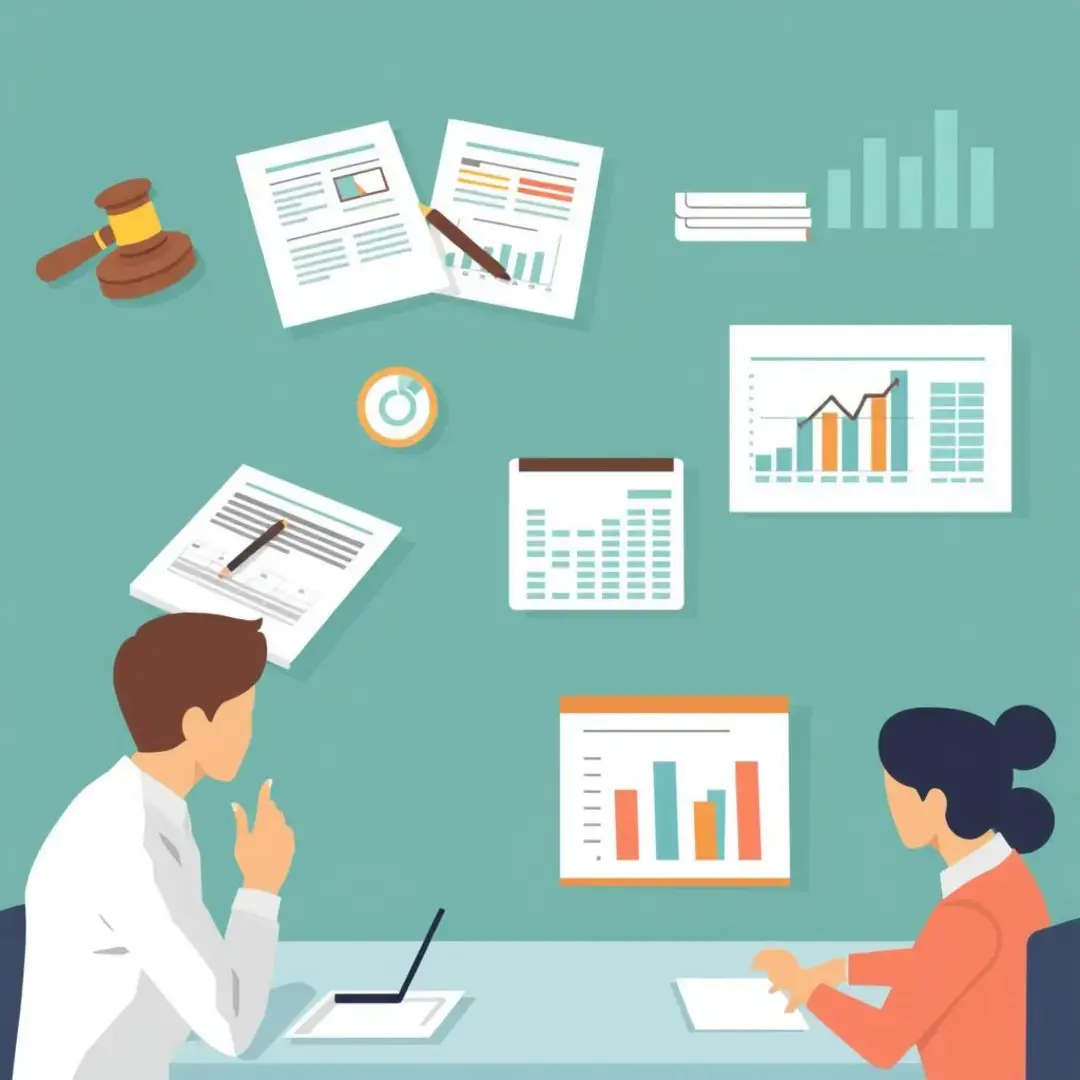Cost-Effective Strategies for Legal Disputes
Pre-litigation strategies to minimize costs

Assessing the merits of your case
Before entering into any legal dispute, start by thoroughly evaluating the merits of your case. Understanding the strength of your legal position can significantly influence both your strategy and potential costs. Consider the existing evidence and how it aligns with the relevant laws. A well-analyzed case allows you to make informed decisions and potentially avoid costly disputes altogether.
When assessing your legal merits, it’s also crucial to analyze the potential financial recovery you might achieve. This involves estimating damages and determining if the case is worth the investment of your time and resources. A careful financial assessment will help you identify whether pursuing legal action is a pragmatic decision, especially if the potential recovery is significantly less than the cost of litigation.
An often-overlooked aspect of legal disputes is the defendant’s ability to satisfy a judgment. If the defendant lacks the financial means to pay an awarded judgment, pursuing the case may ultimately result in wasted resources. Thus, it is wise to conduct due diligence on the opposing party’s financial status prior to litigation, allowing you to make a more informed strategic decision.
Alternative dispute resolution (ADR) methods
One of the most effective ways to reduce legal costs is through negotiation and settlement. Early settlement discussions allow both parties to express their concerns while working towards a mutually beneficial agreement. These negotiations can often save both time and money, avoiding the need for a protracted legal battle.
Mediation is another valuable avenue for resolving disputes without entering the courtroom. In this informal process, a neutral third party facilitates discussions between the involved parties. Mediation can streamline the resolution process and yield satisfactory outcomes for all, all while keeping litigation costs at bay.
Arbitration is a more structured form of alternative dispute resolution that can still save on costs compared to traditional litigation. In arbitration, an arbitrator reviews evidence and makes binding decisions. Although it does involve some legal fees, it typically results in a quicker resolution with less formal procedures than a court trial, making it a cost-effective option.
Preserving evidence and documentation
Good record-keeping is essential in any legal dispute. Organized and accessible documentation can not only support your claims but also minimize time spent in discovery. By maintaining detailed records, you reduce legal costs and strengthen your position should negotiation or litigation become necessary.
Today’s legal disputes often hinge on electronic communication. Implementing robust data security measures to preserve emails, texts, and relevant digital content is critical. Ensuring that this information is organized and readily available can make the difference in legal proceedings and protect you from potential spoliation claims.
Collecting witness statements and affidavits before an official dispute arises can save you time later in the process. Proactively gathering this information allows you to build a stronger case while also demonstrating credibility. It’s important to document these statements thoroughly, as they can serve as crucial evidence should your case go to trial.
Managing litigation costs effectively

Choosing the right legal representation
Choosing the right legal representation is one of the most impactful decisions you will make during a dispute. Engaging an attorney who specializes in your specific area of law can lead to better outcomes and more cost-effective strategies. Their experience in similar cases can provide insights that save you both time and money as they navigate the complexities of the legal system on your behalf.
Understanding your attorney’s fee structures and billing arrangements is vital for budgeting. Law firms may charge hourly rates, flat fees, or a combination of both. While it’s important to find an attorney whose fees align with your budget, never compromise quality for cost; a skilled attorney can often save you money in the long run through effective representation.
Maintaining effective communication with your legal team is essential for managing litigation costs. Regular updates and open dialogues about strategy can prevent misunderstandings and reduce unnecessary expenditures. A transparent relationship encourages collaboration and ensures everyone is aligned on the case objectives.
Developing a cost-conscious litigation strategy
In litigation, it’s crucial to prioritize key legal issues to focus your resources effectively. By determining which issues are most likely to impact the outcome and are most important to your case, you can allocate your time and money more efficiently. This focused approach helps maximize your chances of a successful resolution with minimal financial burden.
Discovery can often be one of the most expensive aspects of litigation. Streamlining this process by clearly defining which documents are necessary and relevant can save considerable time and costs. Fostering collaboration among your legal team during this phase will lead to a more efficient discovery process, ultimately reducing the overall expense.
In today’s digital world, leveraging technology for case management is key to managing litigation costs effectively. Various software tools can help with documentation, evidence organization, and communication among team members. Utilizing these tools not only saves time but also minimizes the potential for billing errors, thereby controlling expenses.
Controlling expert witness fees
Engaging expert witnesses can add significant costs to your case, so it’s crucial to choose them wisely. Look for experts who possess niche knowledge and experience relevant to your specific case. A credible reputation can also boost your case’s standing while minimizing unnecessary expenses related to expert fees.
Managing expert depositions and their accompanying reports is another area where costs can balloon unexpectedly. Ensure that you clearly communicate expectations and requirements when engaging an expert, as this can help avoid excessive deposition hours. Focusing on essential information can further streamline the reporting process and keep costs in check.
Don’t shy away from negotiating fees with expert witnesses. Many are open to discussions about their compensation, especially if you clarify the extent of their involvement upfront. By establishing clear contracts and expected payment terms, you can mitigate the risk of unforeseen charges while still securing the vital expertise your case may need.
Post-litigation cost management

Enforcing judgments and collecting awards
Once your legal battles have concluded, managing the aftermath is imperative to avoid incurring further costs. Developing a robust strategy for collecting monetary damages can help you realize the benefits of your victory. This may include leveraging legal enforcement mechanisms. Proactively pursuing collection can protect your financial interests while discouraging future disputes.
Enforcing non-monetary judgments can often pose unique challenges, especially if the compliance relies on the other party’s goodwill. Establishing a clear plan for enforcement, including possible legal steps, allows you to effectively influence compliance. A well-defined approach minimizes potential delays and ensures that you capitalize on the benefits of the judgment.
Appeals and further proceedings
Should the need for an appeal arise, conducting a thorough cost-benefit analysis is essential. Consider both the financial implications of the appeal process and the potential for a different outcome. Decision-making in such scenarios should be informed by comprehensive risks and a clear understanding of the appeals court’s behaviors and precedents.
Appeals can be notoriously expensive; however, taking proactive measures can help minimize these costs. By narrowing the issues on appeal and efficiently managing legal research, you can avoid unnecessary expenses. Additionally, choosing the right legal representation for the appeal, particularly those experienced in appellate work, will ensure that resources are spent judiciously.
Managing ongoing legal expenses
Even after a dispute, managing legal expenses remains important. Consider negotiating payment plans or settlements with your lawyers to spread costs over time, thus easing the financial burden. Transparent discussions about any lingering legal matters can help maintain cash flow without sacrificing the quality of legal representation.
Continuously monitoring legal bills and expenses is crucial for overall financial health. Regular review of invoices can help identify discrepancies or areas for improvement in billing practices. By maintaining a strong grasp on your legal expenditures, you can ensure that your financial resources are utilized efficiently, mitigating the risks of overspending as you successfully navigate the complexities of legal disputes.












